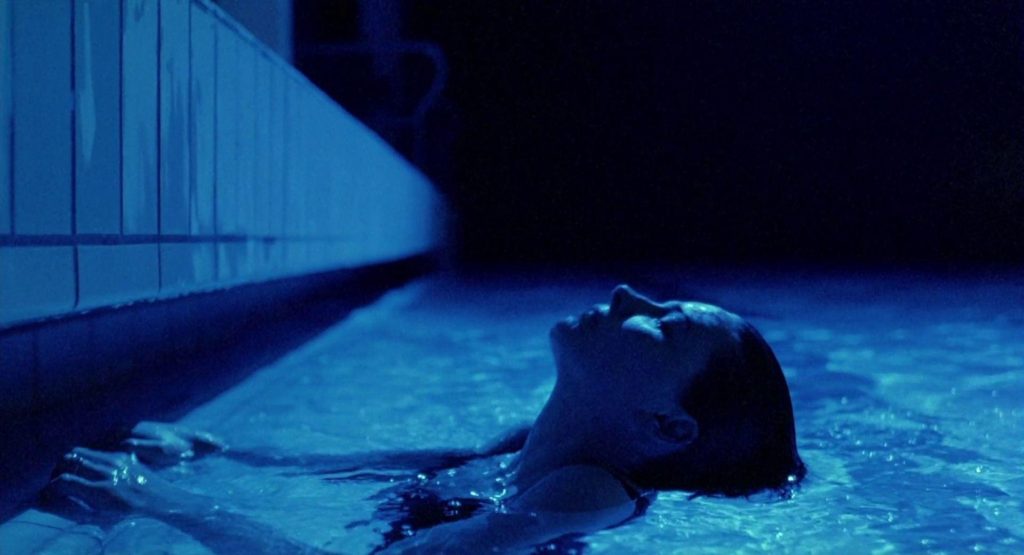
The great and final act of Krzysztof Kieslowski’s remarkable career was the production of a trilogy called Three Colors—Blue, White, and Red—that represents the colors of the French flag, and the values they represent: liberty, equality and fraternity. Filmed in three countries (France, Poland, Switzerland), their plots overlap only slightly. Watch closely, and you’ll see the different main characters pass each other and remain strangers.
Blue, empowered by what may be Juliette Binoche’s greatest performance, is the first: In it, the grieving widow of an internationally renowned composer must decide whether to assist in the completion of her husband’s unfinished work—a symphony about the reunification of Europe. As she tries to begin a new life and escape the pain of memory and loss, she becomes entangled in the lives of her husband’s assistant Olivier, a prostitute named Lucille, and a beautiful stranger named Sandrine who keeps a scandalous secret. The film is a personal journey of grief, forgiveness, and healing, but it is also a story about the heart of Europe, which history has broken to pieces, and all that will be necessary for reconciliation and hope.
White is a dark but whimsical comedy about Karol (Zbigniew Zamachowski), a Polish hairdresser whose wife (Julie Delpy) humiliates him and abandons him. Furious and vengeful, he makes a devil’s bargain with a depressed stranger named Mikolaj, finds his way into wealth, and then stages a disappearing act that will help him carry out a wicked plot. Even as the film focuses on Karol’s misery, his unexpected failures, and his attempt to “dominate” Dominique, it’s also about Poland’s uncertain future and how cultural transformation may bring in a whole new wave of problems.
Red, the last chapter, follows a young fashion model named Valentin (Irene Jacob) who catches a retired judge (Jean-Louis Trintignant) in an act of voyeurism. Frustrated by the legal system’s inability to uncover the truth of a matter, the old man sits at home and uses sophisticated surveillance to listen in on the “truth” of his neighbors’ private telephone conversations with some sophisticated surveillance. While the judge has given up on law, Valentine’s legalism makes her judgmental and condemning. Slowly they explore a middle ground—fraternity—until the film brings all three of the trilogy’s episodes together in an unexpected and dramatic finale.
—Jeffrey Overstreet
- Directed by: Krzysztof Kieslowski
- Produced by:
- Written by:
- Music by:
- Cinematography by:
- Editing by:
- Release Date: 1993
- Running Time: 94
- Language: French, Romanian, Polish
Arts & Faith Lists:
2005 Top 100 — #28
2006 Top 100 — #17
2010 Top 100 — #15
2011 Top 100 — #14